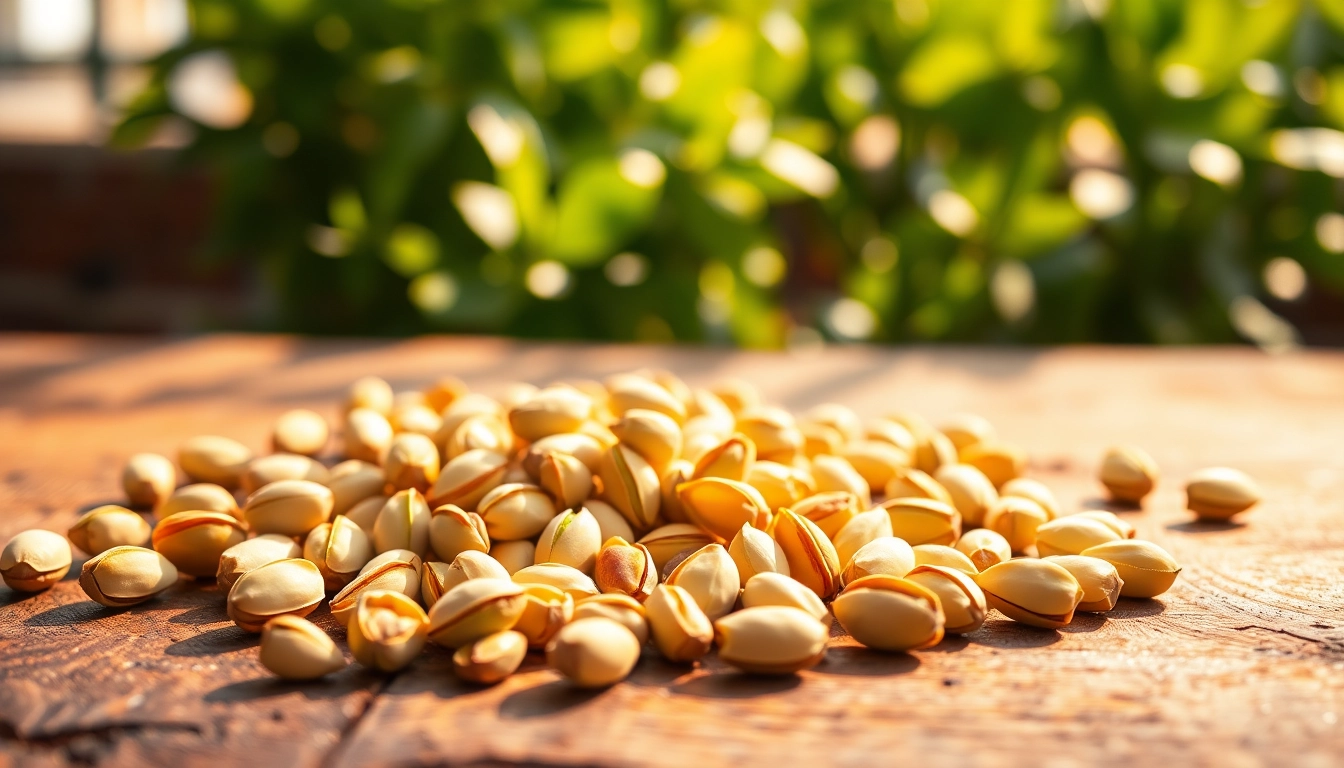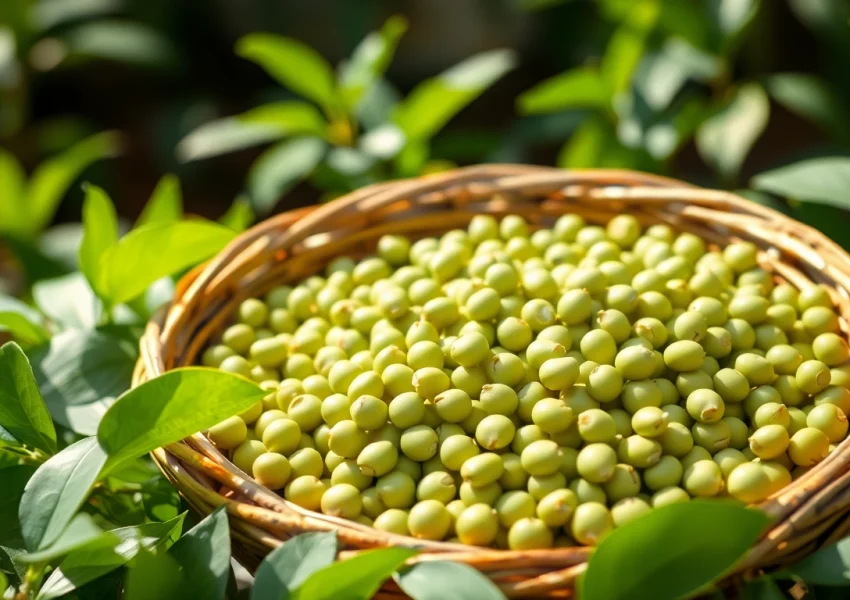Understanding Pistachio Nuts
1. What Are Pistachio Nuts?
Pistachio nuts, scientifically known as Pistacia vera, are edible seeds that come from the fruit of the pistachio tree, which is a member of the cashew family. These nuts are renowned for their unique flavor and vibrant green and purple hue, encased in a hard shell that splits open as the nut ripens. Unlike many other nuts, pistachios are often sold in their shells, which can add an element of interactive snacking. A fun fact is that each ounce of pistachios contains approximately 49 nuts, making them one of the lowest-calorie nuts available, which contributes to their growing popularity as a snack choice. For those looking to explore the full potential of pistachio nuts, a deeper understanding of their origins and nutritional benefits is essential.
2. Origins and Varieties of Pistachios
The origin of pistachios can be traced back thousands of years to the Middle East, particularly in regions that are now Iran, Turkey, and Syria. These areas are considered the cradle of pistachio cultivation, with archaeological evidence indicating that humans have been consuming pistachios since approximately 7000 B.C. Over time, the popularity of pistachios spread across the Mediterranean and into regions such as California, which is now one of the largest producers globally.
Today, there are several varieties of pistachios, with the most popular cultivar being the Kerman, which is known for its consistency and flavor. Other notable varieties include Jolly Green, Turkmenistan, and Peter, each offering unique taste profiles and textures. The diversity of these nuts contributes to different culinary applications, ensuring that there is a pistachio variety suitable for any dish, whether sweet or savory.
3. Nutritional Profile of Pistachio Nuts
Pistachios are not only delicious but also packed with essential nutrients. A typical serving (1 ounce or about 49 nuts) contains:
- Calories: 160
- Protein: 6 grams
- Fat: 13 grams (of which only 1.5 grams are saturated fat)
- Carbohydrates: 8 grams
- Fiber: 3 grams
- Vitamin B6: 20% of the Daily Value (DV)
- Thiamine: 15% of the DV
- Potassium: 7% of the DV
This rich nutritional profile combines healthy fats, plant-based protein, and a variety of vitamins and minerals, making pistachios an excellent choice for maintaining overall health. Their rich fiber content also helps in improving digestive health and keeping hunger at bay, thereby supporting weight management efforts.
Health Benefits of Pistachio Nuts
1. Rich Source of Antioxidants
Pistachios are renowned for their high antioxidant content, which includes compounds such as carotenoids and phenolic acids. These antioxidants play a crucial role in neutralizing harmful free radicals in the body, thereby reducing oxidative stress and lowering the risk of chronic diseases. A study published in the Journal of Nutrition highlighted that pistachios have higher levels of antioxidants compared to other nuts, making them a powerful ally in combating free radical damage.
2. Heart Health and Cholesterol Management
Numerous studies suggest that incorporating pistachios into one’s diet can have positive effects on heart health. The monounsaturated and polyunsaturated fats found in pistachios can help lower bad cholesterol (LDL) levels while increasing good cholesterol (HDL). A review in the American Journal of Clinical Nutrition found that regular pistachio consumption can reduce heart disease risk factors, especially when combined with a heart-healthy diet. Furthermore, the fiber and protein content in pistachios also contribute to maintaining a healthy heart by aiding in blood pressure regulation.
3. Weight Management with Pistachio Nuts
Pistachios are unique among nuts in that their shells provide a visual cue for portion control. Studies show that people who eat in-shell pistachios tend to consume fewer calories overall, as the act of shelling each nut slows down the eating process, allowing for better satiety recognition. Eating pistachios in moderation can also help balance calorie intake and fat consumption, making them a satisfying snack that supports weight loss or maintenance near a culinary diet.
How to Incorporate Pistachio Nuts into Your Diet
1. Snacking Ideas
Pistachios make for a convenient and tasty snack at any time of the day. They are perfect for mid-morning or afternoon snacking, especially when seeking a healthy alternative to typical processed snack foods. Here are some delicious snacking ideas:
- Mix pistachios with dried fruits, like apricots or cranberries, for a superfood trail mix.
- Pair pistachios with cheese or yogurt for a balanced protein-rich snack.
- Sprinkle roasted pistachios on top of salads or oatmeal for added crunch and flavor.
2. Cooking and Baking with Pistachios
Pistachios can also be incorporated into a variety of recipes. Their unique flavor complements many dishes, both sweet and savory. Some culinary uses include:
- Using crushed pistachios as a crust for fish or chicken, offering a delightful crunchy texture and nutty flavor.
- Baking them into cookies, cakes, or breads to add richness and color.
- Creating pistachio pesto to serve with pasta or as a dip.
These applications not only diversify your meals but also enhance the nutritional quality of your dishes.
3. Pistachios in Whenever Healthy Meals
Pistachios can be seamlessly integrated into many healthy meals. Consider these ideas:
- Incorporate them into breakfast smoothies for a creamy texture and boost of protein.
- Add pistachios to grain bowls or stir-fries for added protein and texture.
- Use them to garnish soups for a nutty crunch.
Pistachio Nuts: Considerations and Side Effects
1. Daily Recommended Intake
Nutritionists generally recommend a serving size of approximately two ounces—or about 90 shelled pistachios—daily for optimal health benefits without excess caloric intake. Due to their high fat content, it’s crucial to consume them in moderation as part of a diversified diet. This approach ensures that your intake of healthy fats aligns with your personal dietary needs and goals.
2. Allergies and Sensitivities
Like other nuts, pistachios can cause allergic reactions in some individuals, which can range from mild to severe. If you have a known nut allergy, it is essential to consult a healthcare provider before adding them to your diet. Symptoms of nut allergies may include hives, swelling, digestive issues, and in severe cases, anaphylaxis. If you’re unsure about your tolerance or have experienced any reaction, it’s best to seek medical advice.
3. Possible Health Risks
While pistachios have numerous health benefits, it’s important to be aware of potential health risks. Overconsumption may lead to digestive discomfort, primarily due to their high fiber content. To mitigate this, start with a small quantity and gradually increase as your body adapts. Furthermore, individuals with nightshade sensitivities should be cautious, given that pistachios belong to this family of plants. Moderation and awareness are key to enjoying pistachios healthily.
Conclusion: Embracing Pistachio Nuts for Wellness
1. Summary of Health Benefits
Pistachios are indeed a remarkable addition to anyone’s diet, offering a unique combination of flavor, texture, and nutritional benefits. Their richness in antioxidants, heart-healthy fats, and protein makes them a superfood worthy of consideration. Not to mention, their versatility in culinary applications ensures that they can fit into any diet suitably.
2. Encouraging Nut Consumption
Embracing nuts like pistachios can lead to several health advantages. Nutritionists and health advocates strongly recommend incorporating a variety of nuts, including pistachios, into daily dietary routines. They encourage everyone to explore different ways to enjoy these nuts, emphasizing that snacks should not only be satisfying but also nutritionally beneficial.
3. Future of Pistachio Nuts in Nutritional Research
As ongoing research continues to uncover health benefits associated with pistachios, it’s clear that these nuts hold significant potential for future dietary recommendations and wellness strategies. Further investigations into their effects on heart health, weight management, and anti-inflammatory properties will undoubtedly solidify pistachios’ reputation as a nutritional powerhouse.






